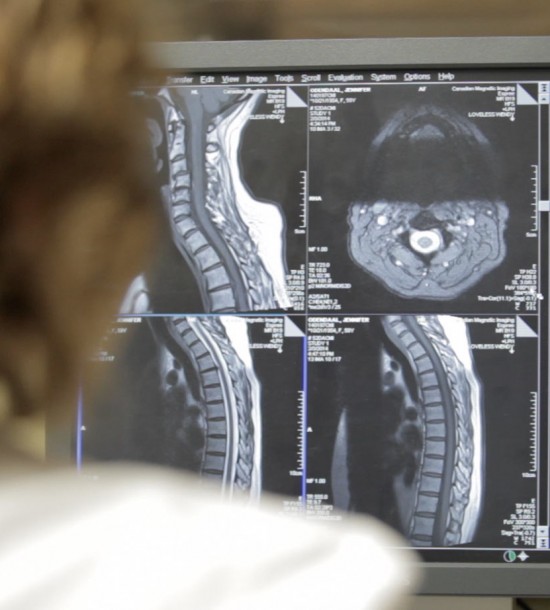Hit and Run Accidents: What You Need to Know
Posted on by Mussio GoodmanWhat You Need to Know About Hit and Run Accidents
A story was recently published about a devastating hit and run collision which took place on Pacific Boulevard between Abbott and Carrall Street in Vancouver.
In the wake of this unfortunate incident, we thought it important to provide the general public with some important information for individuals who are injured in hit and run accidents.
If you are injured by an unidentified motorist, you can claim against ICBC directly for compensation under the Insurance (Vehicle) Act. It should be noted that the law of negligence still applies in this situation. If you are clearly at-fault for the accident, you will not be successful in an injury claim against ICBC even though the other driver took off.
An example of this situation was recently provided in Ormiston v ICBC 2014 BCCA 276. Here, ICBC successfully argued that a cyclist was fully at fault for an accident which caused injury, even though the other driver left the scene and was not identified afterwards.
If you are injured by an at-fault unidentified driver, there are still some very important statutory requirements with which you must comply following the accident. The most litigated aspect in hit and run accidents is whether the Plaintiff took “all reasonable efforts” to identify the at-fault motorist. This is required under s. 24(5) of the Insurance (Vehicle) Act.
In some respects, ICBC wants you to “play detective” in finding the driver who left the scene. In certain situations, this may involve canvassing the neighbourhood in the days and weeks following the accident. In other situations, it may involve thinking quickly in the few moments after to accident to take down a license plate number. However, every situation is different and therefore “all reasonable efforts” is a sliding scale.
Legal Decision on Hit and Runs:
In Morris v Doe 2011 BCSC 253, Madame Justice Ker provided a very useful summary detailing what constitutes “all reasonable efforts” with respect to different situations under s. 24(5):
[54] Two specific time periods are relevant under the s. 24(5) inquiry: the time of the accident and the days or weeks following the accident. If reasonable efforts could not be made at the time of the accident, e.g. due to shock or injury; a belief that the party has not sustained any injury; or the driver fled the scene before information could reasonably be obtained, the court examines the steps taken by the plaintiff to ascertain the identity of the negligent driver in the days or weeks following the accident. What constitutes all reasonable efforts is a factual issue decided on a case by case basis.
[55] An examination of the jurisprudence on what constitutes reasonable efforts reveals the following principles:
a. depending on the plaintiff’s condition at the scene of the accident, it may not be realistic to expect the plaintiff to obtain particulars as to the identity of the offending driver particularly where the plaintiff is in shock or confused or injured…
b. failure to record a licence plate number at the time of the accident when the plaintiff has the opportunity to do so or obtain information as to the driver’s identity, either personally or through the assistance of others, but does not take advantage of the opportunity amounts to a failure to take reasonable steps at the time of the accident…
c. simply notifying the police of the accident may not be sufficient to satisfy the requirements of s. 24(5)…
d. the Act does not put the responsibility to find the unidentified driver on the police; rather the responsibility lies with the plaintiff…
e. where a plaintiff does notify the police of the accident, it is not reasonable for them to simply assume the police will make the necessary inquiries without following up with the police and checking to see if there was an investigation and if so what progress was being made in it…
f. simply reporting the matter to the police and ICBC, without more, has led to the dismissal of a plaintiff’s action for failure to comply with the requirement of taking all reasonable steps to ascertain the identity of the driver…
g. where the police attend the scene of the accident and take witness statements and indicate they are investigating the hit and run accident, it may not be necessary for the plaintiff to take any additional steps, depending on the circumstances…
h. a plaintiff placed in a position of danger at the time of the accident cannot be expected to remain in that position to obtain details of a licence plate and movement to a position of safety before trying to obtain any licence information does not constitute a failure to take reasonable steps at the scene of the accident…
i. posting signs in the area of the accident and/or advertising in local newspapers in an effort to find witnesses within a reasonable time after the accident where the accident occurs at a busy intersection is a reasonable and expected step as it is possible that someone present at the time of the accident could be of assistance in ascertaining the identity of the driver of the vehicle that left the scene…
j. failing to post signs at the scene of the accident or place advertisements in the newspaper in a timely manner or in a manner that provides insufficient detail where it is possible that there were potential witnesses who may have information about the accident will result in a denial of coverage under s. 24 of the Act…
k. repeatedly canvassing regular patrons of the business where the plaintiff’s vehicle was damaged in the parking lot of the business may constitute reasonable steps to ascertain the identity of the driver…
l. posting signs and advertising in local newspapers may not be a reasonable step where the accident occurs on a high speed area of highway or a on highway in an area that is undeveloped and sparsely populated…
m. once it is found that a plaintiff acted reasonably in believing they had the information that would be required, such as a licence plate number, there is no onus cast upon them to undertake a highly speculative further investigation upon being advised they have the wrong license plate number…
n. a plaintiff will not be foreclosed from pursuing ICBC as the nominal defendant in a hit and run case where they rely upon information provided by the offending driver that subsequently turns out to be untruthful…
o. failure to follow up on directions to take additional steps such as posting signs for witnesses or advertising, once advised the recorded licence plate number is incorrect will result in a denial of coverage under s. 24 of the Act…
p. failing to make a timely report to the police and failing to follow up on available information from the scene of the accident such as information in the possession of ambulance personnel who attended the scene will result in a denial of coverage under s. 24 of the Act…
q. the failure of ICBC adjusters to advise the plaintiff that other steps to try and ascertain the identity of the driver should be undertaken does not relieve a plaintiff of the obligation to take all reasonable steps to ascertain the unknown driver’s identity…
If you have been injured in a hit and run accident, contact your personal injury lawyer to ensure all statutory requirements are met so your claim is not at risk of being dismissed.
Tweet


